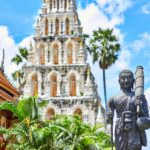Turkey Rose Harvest Tour
Video Introduction
Turkey Rose Harvest Tour – Anyone who ever drove through – or even past – Isparta will have noticed it: this is the city of roses. The pink billboards advertising rose products are hard to miss as soon as you are nearing the town. And while this may all just seem like a brilliant commercial stunt, there’s a whole history behind the rose production in Isparta. As always, the real magic happens away from the shops, where skilled hands of early risers are the secret behind the rose harvest in Isparta. The smell is overwhelming when the morning air is filled with the delicate fragrance of Damask roses, and the awe-inspiring rose fields get a quick makeover from blooming pink bushes to lush green fields.
In this post, we’ll tell you how the Damask rose ended up in Turkey, and what you need to do to make the most out of your rose harvesting visit.
The Damask Rose
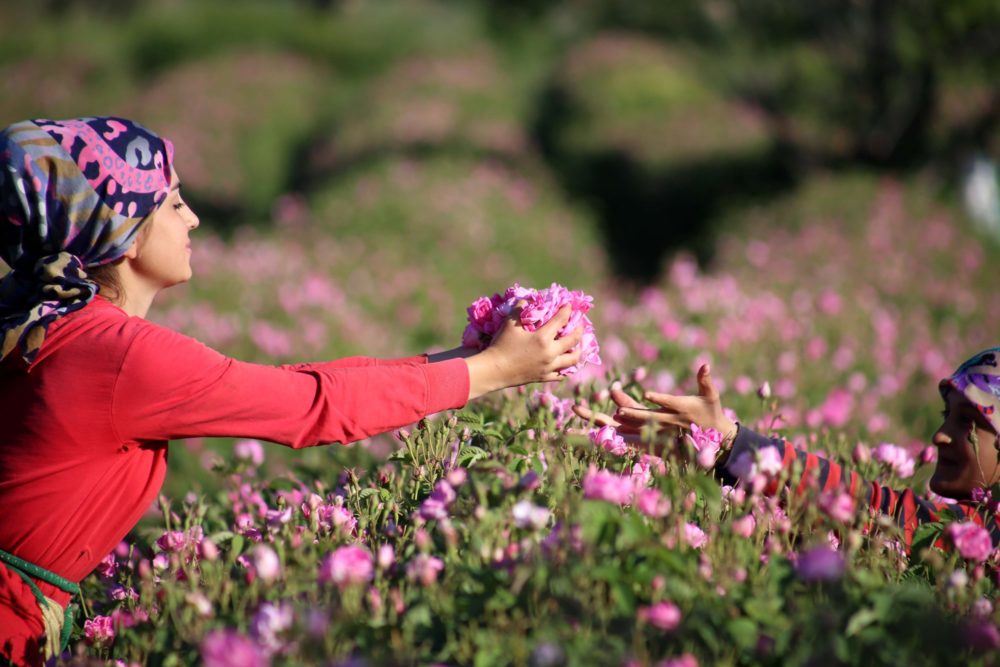
Today, it almost feels as if the Damask rose fields have always dominated the view on the outskirts of Isparta. The cities’ symbol, however, isn’t indigenous to this region. The first saplings were smuggled in from Bulgaria in a walking stick by İsmail Efendi in the early 1870s. Why smuggled, you may wonder? Because the Bulgarian rose valley in Kızanlık (or Kazanluk), where he took the saplings, was a protected area. Still, during his time in Bulgaria, Müftüzade İsmail Efendi noticed how lucrative the production of rose oil could be and decided to give it a shot once he came back to Isparta. By 1892, he was ready to start producing rose oil. In a way, the rest is history, as the rose oil production in Turkey now accounts for about 65% of the worldwide production, and is a major source of income for thousands of families in the area.
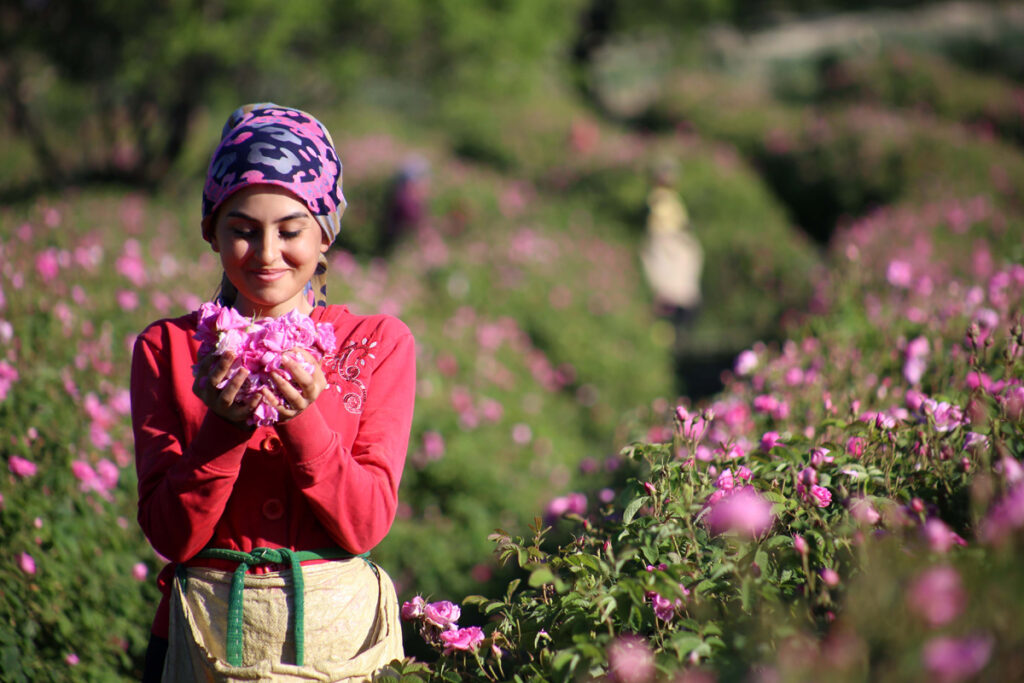
Apart from its precious and delicate aroma, Damask rose oil can be used as an anti-depressant, or to heal the skin. Damask rose water is your go-to remedy for:
- healing wounds
- reducing skin redness
- pore tightening
- anti-aging effects
- treating eye infections
- soothing pharyngitis
- relieving headaches
- helping with anxiety & depression
Turkey Rose Fields
Contrary to the lavender fields in the region, the rose fields are much more dispersed over several valleys and villages. You’ll find the largest rose fields of Isparta in the proximity of Güneykent, appropriately renamed by locals as ‘Güller Vadisi’ or Rose Valley. But also near Yeşilyurt, Gülköy, and even lavender villages Kuyucak and Ardıçlı. If you’re an independent traveler like we are, take a short road trip through the valleys, and you’re bound to see the rose fields. If you’re looking for the typical hotspot, head over to Rose Valley. You may have noticed Gülköy in our list of villages to visit to see the rose fields. A telling name, as it translates to Rose village. Not only the billboard near Isparta feature all things roses, but you’ll also notice that a lot of girls and women have names with the Turkish word for rose, ‘gül’, in it. Some are just called Gül, other Gülay, Gülseren or Gülderen, just to name a few. These last three have a lovely story that goes with it.
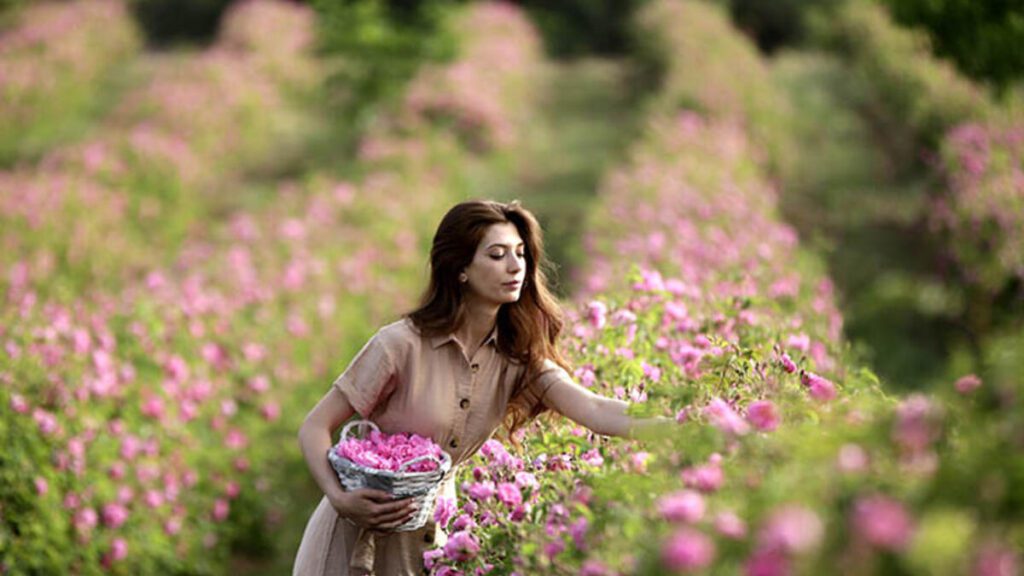
The names are given depending on the time of the day that the girl was born. Evening girls are called Gülay, because ‘ay’ is the Turkish word for moon. Gülseren’s are born in the afternoon when the roses are spread out before being distilled. The name translates to ‘she who spreads out the roses’. Early morning girls – to the same analogy – are called Gülderen, because that’s when the harvest takes place.
Harvesting roses in May in Isparta
If May smells like roses that means you are in Isparta and it is the rose harvest time. When the rose scent is added to the West Mediterranean geography where mountains meet lakes, Isparta welcomes us with all its beauty. If you want to make the most out of your rose fields and rose harvest visit. You need to know two things: you must come during the right months, and you want to visit at the right time during the day. The rose fields are in bloom from mid-May till the end of June. The rose harvest starts at the crack of dawn every morning, by 10 am, you’re too late and every blooming rose is harvested. The rose harvest is done entirely by hand and starts at sunrise. The plan is to finish the picking each day before the sun shines too brightly, and it becomes too hot. This isn’t to protect the workers, but to preserve the precious oil. Fresh, fully blooming blossoms are abundant with oil. As the sun gains in power, the roses mature too quickly, causing the oil to evaporate into the air.
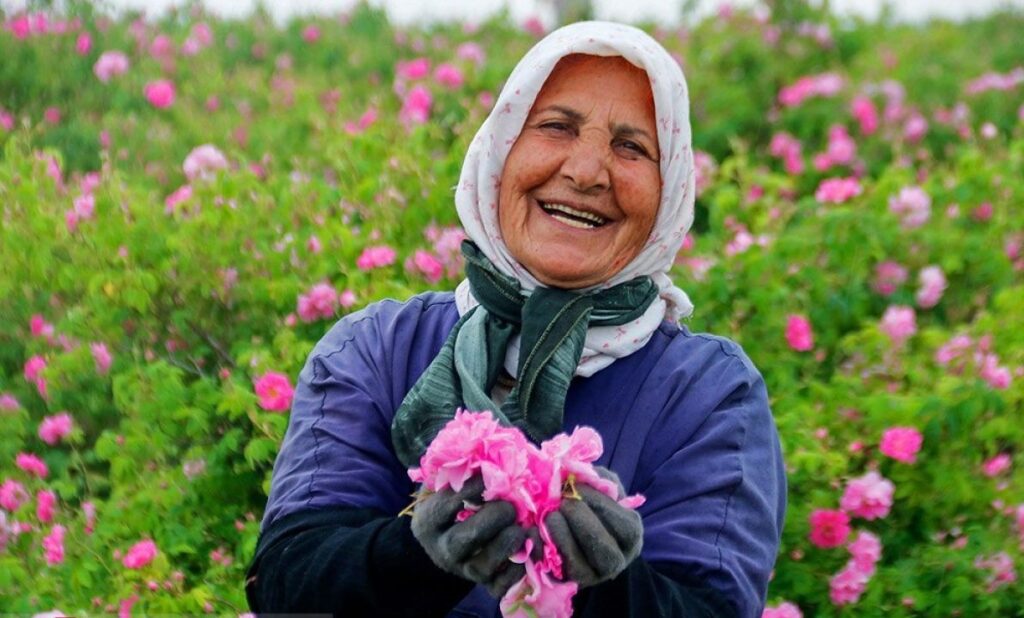
The roses are then taken to the factory where they are processed on the same day. While most of the rose oil production is highly industrialized these days, some artisan rose oil makers still use traditional methods and make rose oil using a distiller they call a black boiler, and without the use of chemicals. You need approximately 4 tonnes of roses to extract 1 kg kilogram of rose oil. If you know that this equals over 1.5 million rose blossoms, you realize that this a very labor-intensive process. No wonder rose oil is considered to be the liquid gold of the perfume industry. Read more about the production methods for rose oil
A fragrant day
If you want to see the rose fields near Isparta at their best, and especially if you want to witness the rose harvest, make sure to be there early morning. For the best experience, explore things a bit further afield to avoid large groups. Are you keen on participating in the harvest? You’ll be very welcome to do so. As explained, speed is a key element, so another helping hand is always appreciated! You’ll get a quick introduction on how to pick the blooms, and after that, off you go! Make sure to bring something to protect you from the heat, and the early morning sun. ‘Güller Vadisi’ (Valley of Roses) Güneykent vicinity, the largest rose garden of Isparta, is 40 km from Isparta and 15 km from the junction of Burdur and Antalya. The vicinity attracts visitors with the promise of a nice fragrance during the harvest from May 15 to the end of June. 15-18% of the roses grown in Isparta are cultivated here. The Isparta rose, which blooms in June and is the only rose suitable for oil production, has a strong scent. In Güneykent, the producers set out for the harvest towards their gardens with their families before the sunrise and together with the first lights of the day, they start to gather roses. The roses gathered until noon are transferred to the agricultural carriers called ‘pat pat’ and taken to the factory; they are processed on the same day and rose oil is derived. A modern rose oil factory was established with the instruction of Atatürk who came to Isparta. Rural rose oil production has begun to leave its place to large-scale industrial rose oil production since 1935. Today, however, if there is demand, some producers produce rose oil with their traditional methods in the sections they build near their houses. It is worth seeing the traditional preparation of rose oil in the distillers called ‘black boiler’.

Rose oil for the whole world
Among the rose products, rose oil is particularly important not only for Turkey but for the world. Isparta with its large rose gardens currently meets the 65 percent of the rose oil production of the world. Rose products are various: rose delight with petals, rose cologne, perfume, jam, water, oil, candle, cream, shampoo, make-up products, rose-scented rosary and prayer rug. There are approximately 1350 rose species around the world. According to the information provided by Isparta City Culture and Tourism Department, 24 of them are recorded in the Turkish flora. Stems of Isparta rose, originally named ‘rosa damascene’, are densely covered with thorns. The hardy flower has five leaflets, strong scent, and pink petals. This rose species, which is a hybrid, is also called pink oil rose, oil rose, gum rose, or Damask rose. If we consider that the rose has been used in alternative medicine in history, the importance of the rose cultivation and industry becomes clearer for Anatolia.
Rose is a blessing
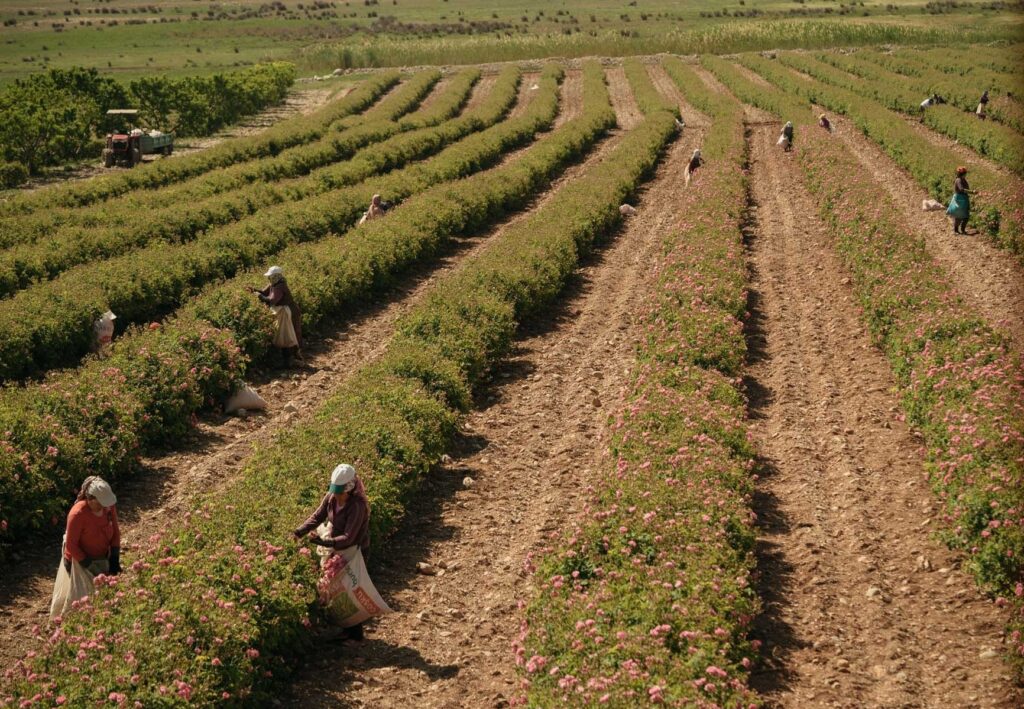
You can take a walk in the rose garden in Güneykent, get information about the rose harvest from the workers, smell the roses, harvest roses with your bare hands, shoot photos, visit Yunus Emre Tomb, and sip your rose tea beside the waterfall at the square. Also, visit the Rose House where the products, handmade by the Gülkent women, are exhibited and the souvenirs, carpets, and sewing workshops are located. Isparta has more than 10 rose oil factories that belong to Gülbirlik and some other private organizations. Touring rose-plant factories and comparing old and new oil extraction methods will also give your tour an interesting perspective. Rose oil, rose preserve, rose cream, the rose syrup will be among the souvenirs of your travel. The world of rose is a very colorful blessing to discover from its fragrant to healing powers.
Traditions
Isparta is a city, which has been identified with roses since the old times. Girls, who were born between 5 and 10 am used to be named Gülderen, which meant ‘one who harvests roses’; girls, who were born in the afternoon used to be named Gülseren, which meant ‘one who spreads out roses’ because the roses were filled into sacks in the afternoon and then spread out on the ground in factories; girls, who were born in the evenings used to be named Gülay, which meant ‘rose and moon’. Until recently, those who came to see Isparta used to visit Atabey Ertokuş Madrasah, which is a worthy Seljuk artifact with its stylized inner dome sky composition, Firdevs Pasha Mosque, Isparta Museum and the natural surroundings of the Göller Yöresi (The Lakes District), purchase rose products, shop and leave. In recent years, both ‘local and foreign tourists’ have become interested in ‘rose harvest tours’, contributing to Isparta’s tourism sector.
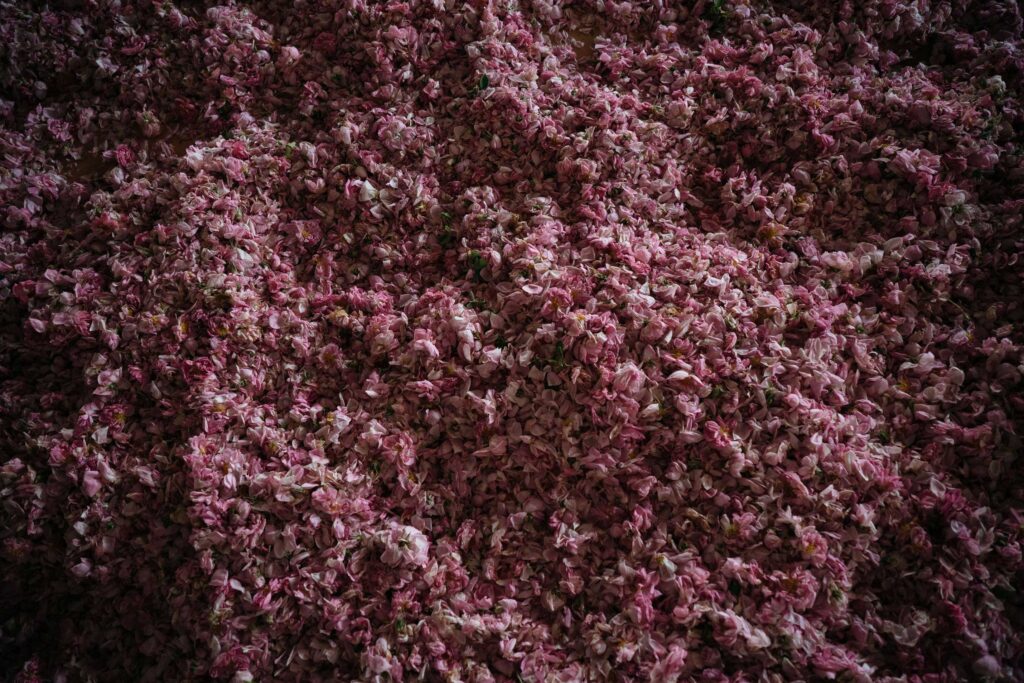
The locals of Isparta say, “Both our lake and rose are famous.” They are right. The popularity of the Lakes Region is not a secret. Numerous alternatives for history, trekking, travel, and photography enthusiasts are available all seasons. Even if you are there to smell and harvest roses, the beauty of Lake Eğirdir may captivate you. In Eğirdir, which is settled along the southern banks of the lake, Canada, Yeşilada, which is a peninsula that projects into the lake, Dündar Bey Madrasa (Taş Medrese) that is used as a covered bazaar now, the Hızır Bey Mosque that attracts attention with its architecture, Aya Stefanos (Yeşilada) Church, Akpınar Village Observation Terrace where you can watch the magnificent mountains and the ‘seven color’ lake are among the places to see.
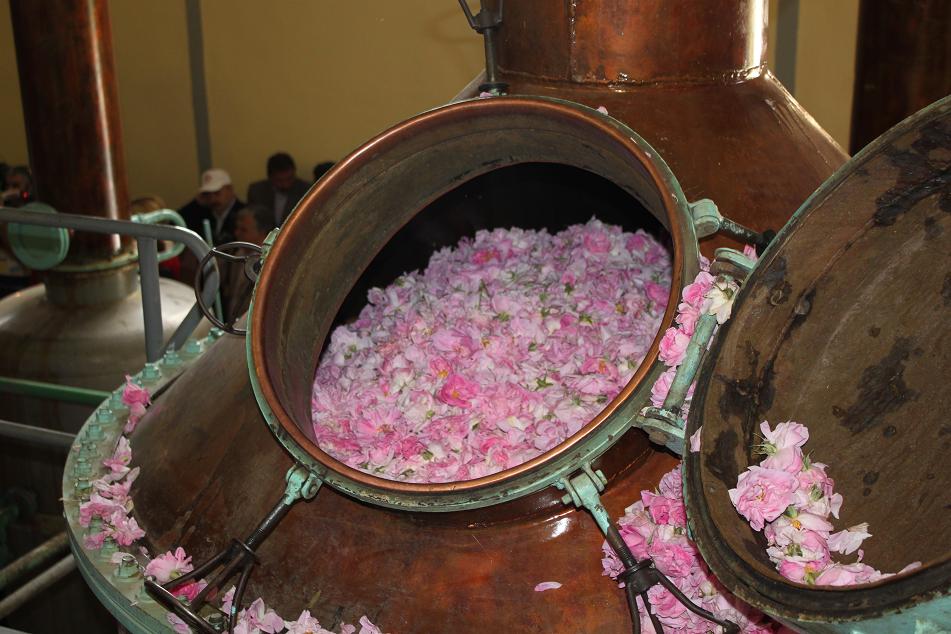
Attending to Rose Festival
If you’re interested in a pre-organized experience, consider attending the annual Rose Festival held every year in May , please contact us. Also, if you time your visit just right – and you’re a bit lucky – you’ll be able to combine a visit to the lavender fields with your rose harvest experience. While late June is still early for the lavender to bloom, the sea of purple usually is already starting to show. This way, you’ll get to enjoy the last days of the rose harvest, and the first days of the lavender bloom.









